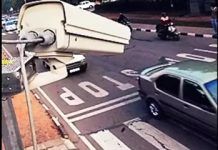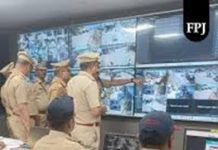In a bid to tackle challenges faced in remote areas such as delay in emergency response in case of sabotage or security breach, natural disasters like landslides, floods and earthquakes, the Railway Protection Force (RPF) has formed strong partnerships with local law enforcement, paramilitary forces and intelligence agencies.
Elaborating on the steps taken by RPF, A Sridha, Chief Public Relations Officer of South Central Railway said, “The RPF is utilizing the Multi-Agency Centre (MAC) platform to facilitate the sharing of intelligence among various security and intelligence agencies. This collaborative approach allows for effective sharing of information, pooling of resources, and coordinated responses to security incidents, it also engages with local communities to build trust and gather intelligence.”
Remote stations, tracks, and signaling equipment are prime targets for scrap metal thieves and vandals who dismantle components such as copper wiring, railway signals, and other valuable parts. This not only disrupts services but also incurs significant costs in repairs and replacements. Additionally, sabotage in the form of track tampering and deliberate obstruction of rail services is a serious concern, Sridha said.
RPF personnel are regularly trained to handle security challenges unique to remote and high-risk areas. Special training programs focus on counter- insurgency techniques, crowd control, crisis management, and handling explosives. The RPF uses advanced technology into its operations for rapid threat responses including CCTV cameras integrated with Facial Recognition Software (FRS).
Additionally, solar-powered CCTV cameras are being installed, and small, military-grade drones are being deployed at strategic locations along the KK line (East Coast Railway) in Chhattisgarh. GPS tracking system has been acquired for live tracking, movement monitoring, and real-time surveillance to prevent any untoward incidents.
The RPF has formed strong partnerships with local law enforcement, paramilitary forces, and intelligence agencies. This collaborative approach allows for effective sharing of information, pooling of resources, and coordinated responses to security incidents.
In remote areas, the RPF engages with local communities to build trust and gather intelligence. The security personnel encourage residents to report any information and it holds awareness campaigns and establishes rapport with village leaders. In many remote railway locations, communication infrastructure is underdeveloped. This hampers real-time monitoring, coordination, and quick response during emergencies.








